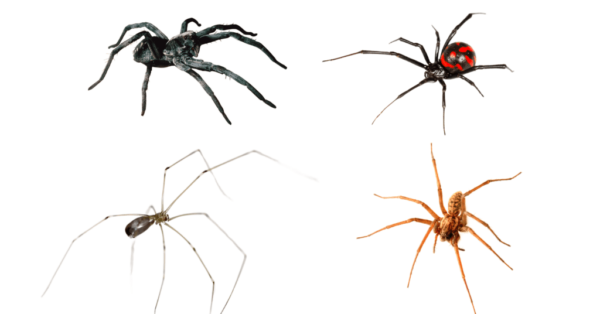
To truly protect a home, it’s not enough to react when pests appear. Effective Pest Control depends on understanding how intruders think and behave. Rodents and spiders, two of the most common household pests, follow patterns that make their presence predictable—if you know what to look for. By learning how these creatures seek food, shelter, and survival, homeowners gain the insight needed to prevent infestations before they grow. Companies like Habitat Pest & Lawn recognize that the more we understand pest behavior, the more effectively we can control it.
Why Behavior Matters in Pest Control
Every pest problem begins with behavior. Rodents chew through walls because their teeth never stop growing. Spiders build webs in dark corners because insects are drawn to those areas. These habits aren’t random—they’re survival strategies.
When Pest Control targets these instincts, results last longer. Instead of constantly removing pests after they’ve entered, behavioral insight allows us to cut them off at the source. Understanding what draws them in, where they prefer to hide, and how they reproduce is the foundation of smarter prevention.
Rodent Habits That Lead to Infestation
Rodents are opportunistic survivors. They’re highly adaptable, able to live in urban, suburban, and rural environments with ease. A few key behaviors explain why Rodent Control is so important:
- Gnawing: Mice and rats gnaw constantly to keep teeth trimmed. Wires, wood, and even plastic are all targets. This habit leads to property damage and electrical hazards.
- Nesting: Rodents build nests in warm, quiet spaces. Attics, basements, and wall cavities offer protection, insulation, and easy access to food sources.
- Scavenging: These animals eat almost anything, from stored grains to crumbs on the floor. Even pet food left out overnight becomes a reliable source.
- Reproduction: Rodents reproduce quickly. A small problem can become a large colony within weeks if left unchecked.
Rodent Control strategies that focus on sealing entry points, reducing food access, and removing nesting sites work because they disrupt these core behaviors.
How Spiders Choose Their Spaces
Spiders may not cause the same level of destruction as rodents, but their behavior makes them persistent intruders. To understand Spider Control, it helps to see the world from their perspective:
- Hunting Grounds: Most spiders follow their food. They build webs where other insects are likely to pass, such as around lights, windows, and quiet corners.
- Low Disturbance: Spiders prefer areas with little movement, which is why basements, attics, and garages are common hiding spots.
- Web Building: Their webs aren’t just traps—they’re also shelters. Multiple webs signal that the environment is favorable for both survival and reproduction.
- Reproduction: A single egg sac can produce dozens of spiderlings, allowing populations to grow rapidly if left alone.
Spider Control works by reducing insect populations (their food source), disturbing hiding spots, and removing webs before reproduction cycles take hold.
Behavioral Signs Homeowners Should Watch For
Pests rarely show themselves openly at first. Instead, they leave signs tied to their habits. Recognizing these early indicators helps homeowners act quickly.
- Rodents: Droppings in corners, gnaw marks on food packaging, and scratching sounds in walls or ceilings.
- Spiders: Webs in low-traffic areas, clusters of egg sacs, or increased sightings of small insects nearby.
By paying attention to these signs, households can call for professional Pest Control before infestations escalate.
The Role of Environment in Behavior
Rodent and spider activity is closely tied to the environment. Weather, food availability, and human activity all influence their choices.
- Seasonal shifts: Rodents move indoors during colder months, while spiders often appear more frequently in late summer and fall.
- Clutter: Piles of boxes, paper, or stored goods provide cover for nesting or web-building.
- Moisture: Damp areas such as basements or bathrooms attract both rodents and the insects spiders prey on.
Changing these environmental factors supports Rodent Control and Spider Control by making spaces less appealing in the first place.
Why Early Action Pays Off
Rodents and spiders don’t wait for convenience—they exploit opportunities as soon as they appear. That’s why hesitation leads to costly infestations. Early Pest Control prevents pests from reaching critical population sizes, which makes treatments simpler and less disruptive.
For rodents, early action stops reproduction cycles before they overwhelm a property. For spiders, it prevents webs and egg sacs from spreading to multiple rooms. Acting at the first sign of activity ensures that control efforts are effective and affordable.
Integrated Strategies for Lasting Results
Successful prevention combines multiple methods designed around behavior:
- Rodent Control: Seal entry points, maintain sanitation, and monitor high-risk areas such as kitchens and basements.
- Spider Control: Reduce insect populations, clean hidden corners, and disrupt web-building cycles.
- Pest Control: Tie everything together with consistent monitoring and targeted treatments.
By focusing on behavior, these strategies don’t just eliminate existing pests—they discourage new ones from moving in.
Reducing Stress Through Understanding
Pests create fear because they seem unpredictable. But once their behavior is understood, they become less mysterious. Homeowners can take simple, informed steps to make their environments less inviting.
Knowledge also reduces stress. Families gain confidence knowing that their preventive efforts align with pest behavior, rather than relying on chance. Partnering with experts ensures that strategies stay up-to-date with evolving conditions.
Final Thoughts
Rodents and spiders are more than nuisances—they’re creatures following instinctive patterns that bring them into conflict with people. By understanding those patterns, Pest Control becomes smarter, faster, and more effective. Rodent Control stops damage before it begins, while Spider Control eliminates the conditions that allow populations to thrive.
With insight into how pests think and act, homeowners can stay a step ahead. Combined with professional expertise from Habitat Pest & Lawn, this knowledge builds a defense system that protects homes year-round. By looking inside the mind of an intruder, families create spaces where pests no longer feel at home.